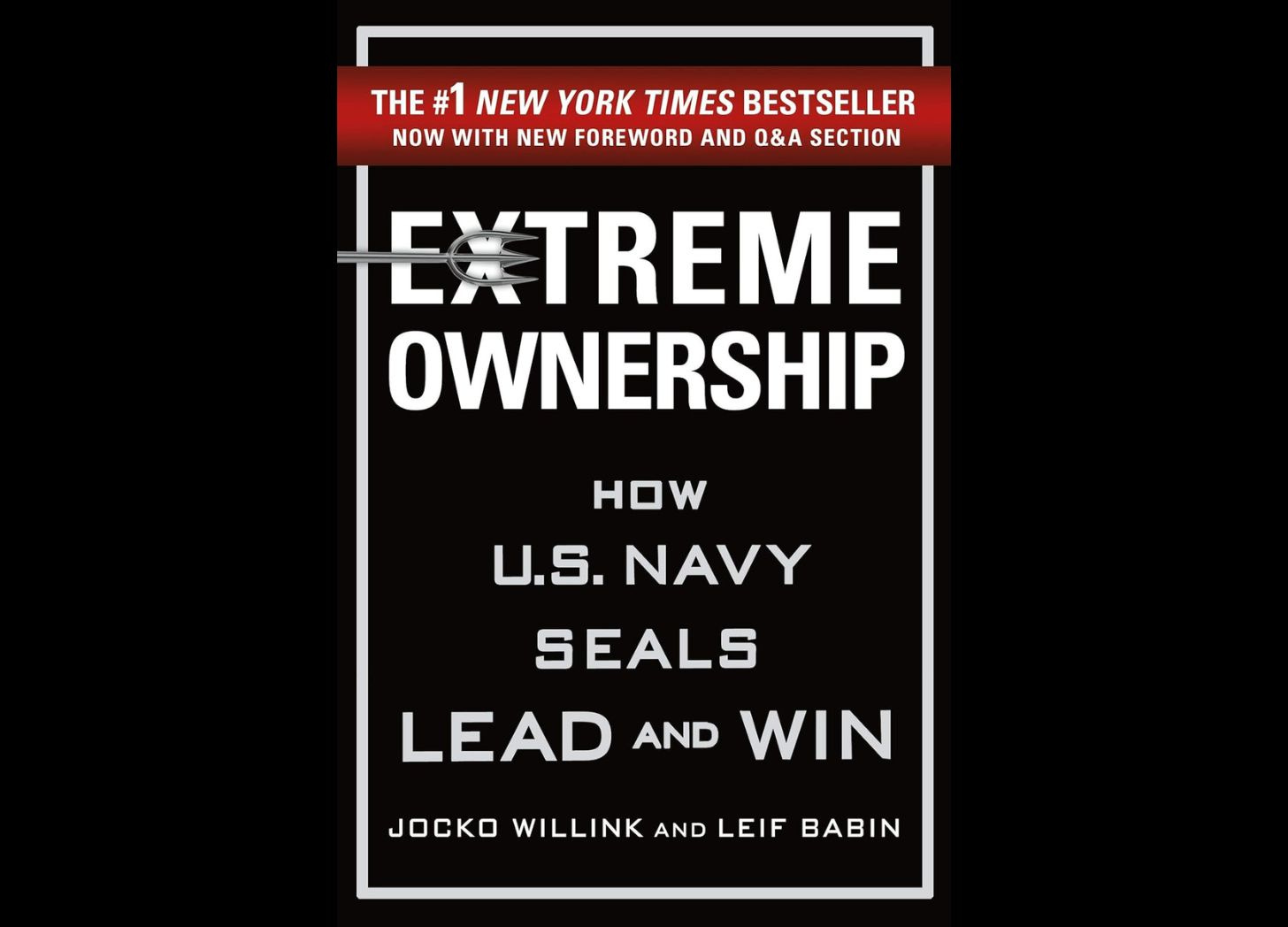Book Byte #38 "Extreme Ownership" by Jocko Willink and Leif Babin
How U.S. Navy SEALs Lead and Win
📣 Curious Quotes from the Author:
“On any team, in any organization, all responsibility for success and failure rests with the leader. The leader must own everything in his or her world. There is no one else to blame. The leader must acknowledge mistakes and admit failures, take ownership of them, and develop a plan to win.”
“In order to convince and inspire others to follow and accomplish a mission, a leader must be a true believer in the mission.”
“Leaders must own everything in their world. There is no one else to blame.”
“The best leaders are not driven by ego or personal agendas. They are simply focused on the mission and how best to accomplish it.”
“ Cover and Move, Simple, Prioritize and Execute, and Decentralized Command.”
“Discipline equals freedom.”
“It’s not what you preach, it’s what you tolerate.”
“The test is not a complex one: when the alarm goes off, do you get up out of bed, or do you lie there in comfort and fall back to sleep? If you have the discipline to get out of bed, you win—you pass the test. If you are mentally weak for that moment and you let that weakness keep you in bed, you fail. Though it seems small, that weakness translates to more significant decisions. But if you exercise discipline, that too translates to more substantial elements of your life.”
“The most fundamental and important truths at the heart of Extreme Ownership: there are no bad teams, only bad leaders.”
“Implementing Extreme Ownership requires checking your ego and operating with a high degree of humility. Admitting mistakes, taking ownership, and developing a plan to overcome challenges are integral to any successful team.”
“When setting expectations, no matter what has been said or written, if substandard performance is accepted and no one is held accountable—if there are no consequences—that poor performance becomes the new standard.”
“Leaders should never be satisfied. They must always strive to improve, and they must build that mind-set into the team. They must face the facts through a realistic, brutally honest assessment of themselves and their team’s performance. Identifying weaknesses, good leaders seek to strengthen them and come up with a plan to overcome challenges. The best teams anywhere, like the SEAL Teams, are constantly looking to improve, add capability, and push the standards higher. It starts with the individual and spreads to each of the team members until this becomes the culture, the new standard. The recognition that there are no bad teams, only bad leaders facilitates Extreme Ownership and enables leaders to build high-performance teams that dominate on any battlefield, literal or figurative.”
“Prioritize your problems and take care of them one at a time, the highest priority first. Don’t try to do everything at once or you won’t be successful.” I explained how a leader who tries to take on too many problems simultaneously will likely fail at them all.”
“You can’t make people listen to you. You can’t make them execute. That might be a temporary solution for a simple task. But to implement real change, to drive people to accomplish something truly complex or difficult or dangerous—you can’t make people do those things. You have to lead them.”
📚 Cognition of the Book’s Big Idea:
As a leader, whether in the military or any industry, you must assume full responsibility for your team and its efforts. This includes accepting responsibility for both your team's triumphs and failures, developing detailed risk-management plans, and maintaining open lines of communication in all directions.
Decentralize command to ensure effective management.
People cannot efficiently manage more than six to ten people directly. Nonetheless, many corporate CEOs head far larger teams. Here, the Navy SEAL management concepts can assist: First, divide your team into sub-teams of no more than four or five persons, each with a chosen leader. Ensure that these leaders comprehend the bigger team's general aim and ultimate goal. Then, allow your junior leaders to make decisions that will help them achieve that goal on their own. This arrangement works effectively without overwhelming you personally.
🛠️Fixing the Tech Industry
Delegation is always a weakness of most powerful leaders. However, the most effective leaders are masters at delegation. It all comes down to trust. If a Leader make you a Director or Manager, they are putting their trust in you to take some of the burden off of their shoulders. Take ownership of that trust and accomplish the things they don’t ask you to do. Showing initiative to be a problem solver and not a problem giver will infinitely better your goodwill and capabilities.
We’ve all had micromanagers, and we’ve all felt the awful effect they bring into our lives. No matter what your corporate experience has been, you always have the opportunity to grow and become a better leader than they were.
🤝 Collaborate with others with this Social Media Prompt:
What can you do to help alleviate some issues on your manager’s plate right now? What would you love to have taken off your plate by someone else? You should probably start with that. Take Extreme ownership of what you can, and delegate the rest.
Get the Full Book Summary and more by subscribing to our Premium Membership below:
Keep reading with a 7-day free trial
Subscribe to Club 255 to keep reading this post and get 7 days of free access to the full post archives.



